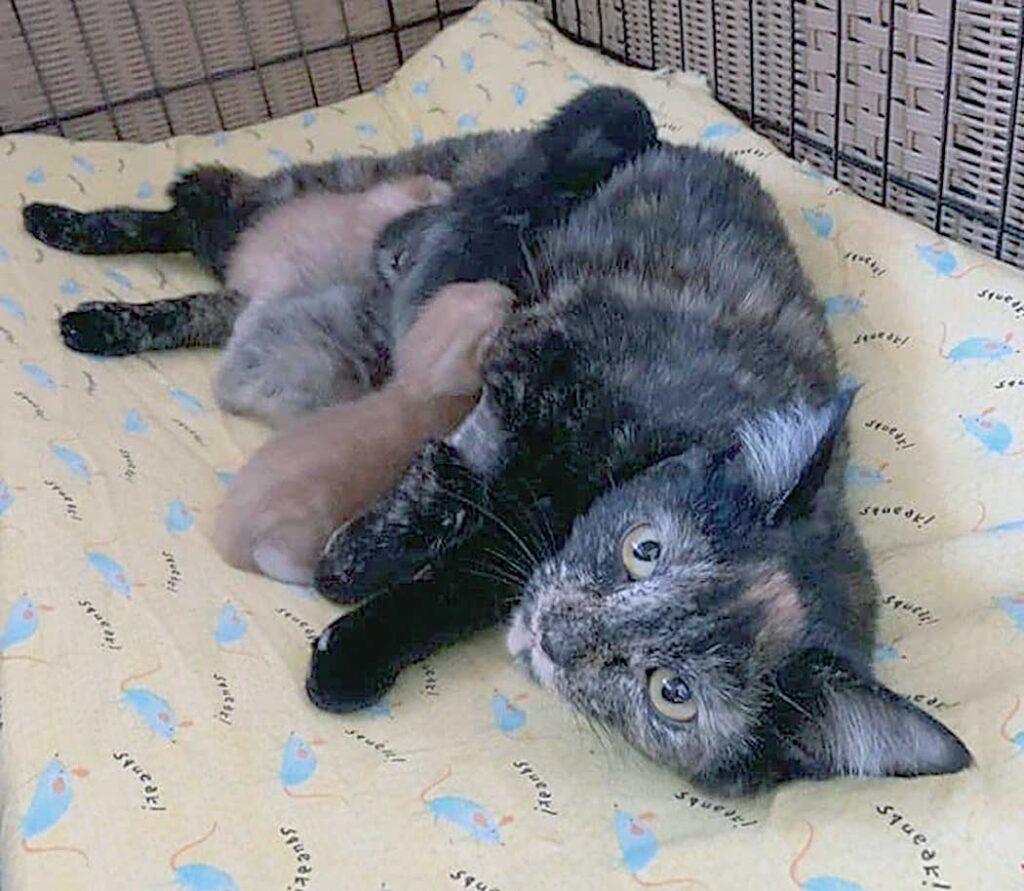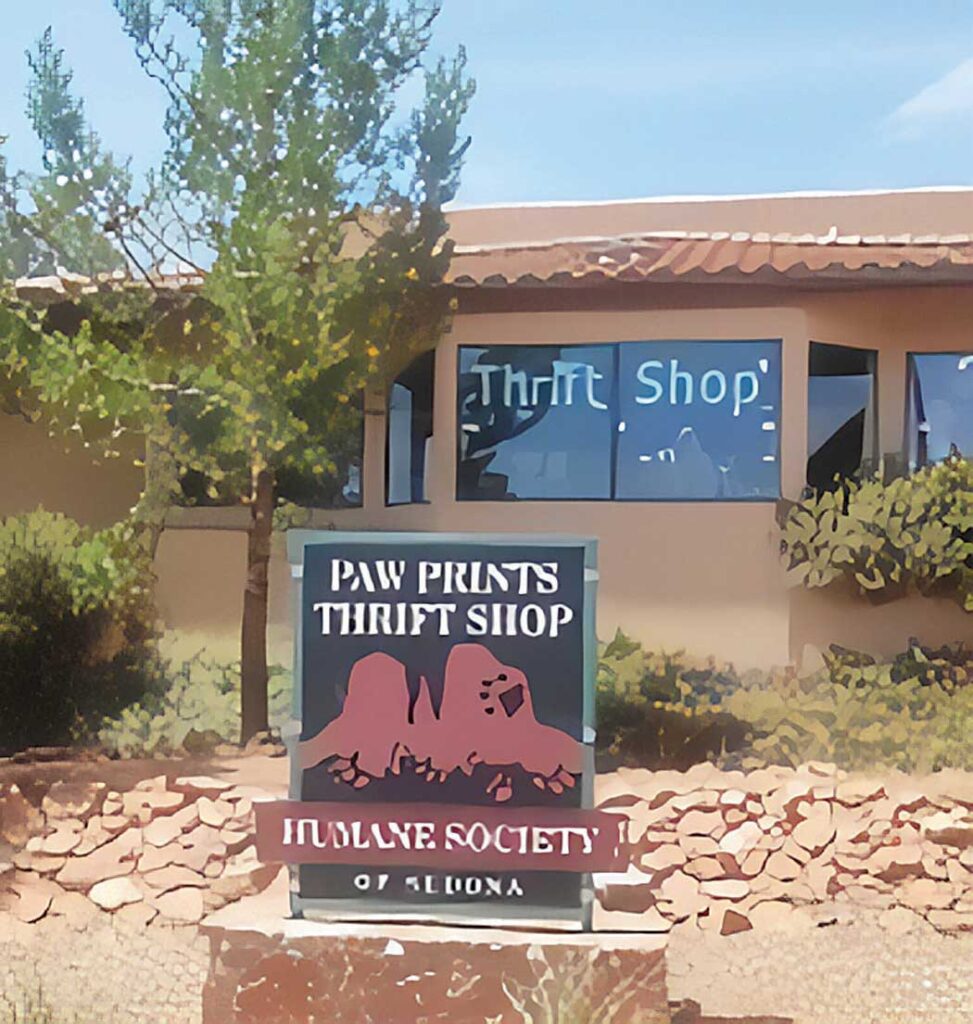By Jacqueline Vaughn
“We’re still open for business.”
That is the blunt response of Sue Marue, founder of The Ark Cat Sanctuary, when asked in mid-April about how her facility’s operations were changing as a result of the novel coronavirus pandemic.
While many rescues and shelters put a hold on incoming animals during the pandemic, Marue’s volunteers continued to hold off-site adoptions at PetSmart in Flagstaff, and in late April, took in kittens from the Tuba City Humane Society, which does not have facilities available for felines. She says that she never really closes, no matter what the circumstances, weather, or even finances.
Although kitten season appeared to be starting a bit late this year, The Ark still had its hands full rescuing some of the most at-risk felines in the region.
The decision on how to respond to the coronavirus has varied considerably throughout northern Arizona as policies have changed. Governor Doug Ducey closed schools on March 15, bars and restaurants on March 19 and issued a stay-at-home order on March 30. That order allowed people to carry out essential tasks such as working, exercising, going to the doctor, grocery store or pharmacy. It otherwise required people to stay at home and barred nonessential businesses from operating as usual. The order was renewed for another two weeks when it expired at the end of April, although the governor relaxed some restrictions through May 15.
Rescues like The Ark saw adoptions continuing during the latter part of February and into the first two weeks of March, but Marue notes that with fewer people leaving their homes, even adoptions at PetSmart had slowed down considerably by the first of April. She noted that volunteers continued to take care of the cats at the store, which remained open for business, and were there to meet any members of the public interested in adopting a cat or kitten.
In some ways, The Ark never closed since their participation in social media and PetSmart continued unabated. As kitten season burst into May, they put out a call for fosters to help care for the hundreds of tiny felines that had begun to appear.
The Coconino Humane Association in Flagstaff is one of the organizations that experienced adoption numbers that one staffer referred to as “phenomenal” in a Facebook post.
In late March, adoptions began to increase at the shelter facility, with speculation that even with guidelines to avoid non-essential travel, people had time on their hands and a desire to help. The shelter limited visitors to ten at a time and had a set of procedures in place that asked those who felt sick or who had a family member who felt unwell to stay home. They asked visitors to practice good hygiene both before and after petting or feeding companion animals and shelter pets.
The situation with municipal shelters has also varied. Many facilities have been required to stay open because they implement contracts for cities and/or counties to take in stray animals. For instance, the Humane Society of Sedona, which holds the contract for providing care for incoming cats and dogs within the city limits, found that local residents following the stay-at-home guidelines were eager to help the shelter by fostering animals and adopting them.
Executive director Jennifer Brehler and managers at other shelters initially decided to stop taking in out-of-area animals to leave room for an expected influx of animals whose owners could no longer care for them. But by early May, the shelter had no dogs available for adoption, and only one adult cat – evidence that, at least at this point, the expected arrival of animals in need had not occurred.
Some shelters in Phoenix stopped taking in owner surrenders altogether, but the HSS worked with owners whenever possible by asking them to wait, to try rehoming through social media, or helping to find a foster.
At most times, the shelter housed only a small handful of dogs and cats, asking potential adopters to make an appointment to see those that were available due to owner surrenders or strays that were not reclaimed. The facility also changed its staffing patterns by dividing some staff and volunteers into one of three teams that would not overlap each other’s shifts to reduce exposure.
The group’s call for fosters, which helped make room for unwanted animals, was quickly answered, mirroring the case nationwide. Representatives from the nonprofit Best Friends Animal Society reported that the data management system Pet Point analyzed figures from 1,200 animal welfare organizations, and for the week of March 14-20, the groups saw an overall 93% increase in animals going into foster homes compared to the previous week.
What the shelter needed most, at least for a brief period, was face masks that could be washed and reused, since that type of Personal Protective Equipment or PPE is not part of the typical shelter supplies. While some items, such as gloves and hand sanitizer, are usually found there, face masks were not. But social media requests quickly were answered with a colorful supply of the masks made by local volunteers.
In May, the shelter also resumed its popular Yoga with Cats event, although the yoga “studio” was virtual instead of being held at the facility. By early May, however, with the number of Covid-19 cases remaining at only ten for Sedona, with no reported deaths, HSS began to transfer cats from Phoenix into its shelter to ease the pressure on Valley facilities.

One of those cats was seven-year-old Ginger, a community cat who had been trapped, spayed, and returned to her colony. The colony monitor noticed a wound on her face, and she was taken to the Arizona Humane Society for treatment and healing. The AHS found that she had Polycystic Kidney disease, and that she would require a special, but inexpensive, diet. The disease often results in cysts growing in the cat’s kidneys. There is no medication for treatment, and it could result in advanced kidney disease. Ginger could live a normal life, and the HSS agreed to try to find a quiet, calm home for her.
High Country Humane, east of Flagstaff, also took steps to limit public exposure and risk. The organization’s new executive director, Liz Bohlke, says that her challenge was to respond to a situation that appeared to change every day.
In a March 19 announcement, the shelter noted that part of that response included closing their spay and neuter clinic at the shelter “for the safety of our community and for the safety of our employees.” High Country Humane also suspended its low-cost vaccine clinics until further notice but ran an adoption special of $50 for cats and dogs, which included spay or neutering, vaccines, and microchipping.
The discounted fee structure was implemented to help the shelter balance the need to take care of incoming stray animals – part of its contract with the City of Flagstaff and Coconino County, and to make room for an anticipated need for more space for owner surrenders. They also put out a call for assistance for their Pet Food Pantry, expecting that as some owners lost their jobs, they might need pet food or other supplies.
In May, High Country Humane scheduled its regular pet food distribution held on the fourth Saturday of every month from 1 to 3 pm at the Flagstaff shelter. The facility invited families in need to pick up dry cat or dog food from its warehouse and also offered delivery to those unable to come to the facility in person.

One of the consequences of the pandemic for non-profit groups was a dramatic drop in revenue. Red Rose Inspiration for Animals, one of the area’s smaller rescues that work primarily with stray and feral cats, experienced the pandemic in a different way. Instead of adoption events, they set up appointments for potential adopters to visit animals at fosters’ homes.
Red Rose also continued their TNR—Trap, Neuter, Return operations with volunteers. But they were forced to cancel their fundraising events and close their thrift stores – activities that raise more than 90 percent of their revenue. While the group continued to function and kitten season finally arrived, the funds it relies on did not.
Red Rose re-opened its two thrift stores in Sedona on May 8, one of the first retail operations in the area to open back up after seven weeks.

The closure of the two thrift stores operated by the Humane Society of Sedona also meant a loss of one of the group’s major funding streams. While fosters volunteered to help with the animals, other types of fundraising were put on hold in favor of direct mail and online appeals.
Two national online giving events – one in April and one in May – helped the two shelters, but they could not begin to replace the normal revenue stream, nor could adoption fees. The amount raised through AZ Gives Day in April only allowed Red Rose to pay for the alteration of four cats and one visit to a veterinarian.
It is still too early to tell how rescues and shelters will have to adjust their everyday operations for the long term, or when they might open and begin what may now be “normal” activities, such as fundraising events. But there is no doubt that the impact of the global pandemic will continue to be felt in Northern Arizona for many months, if not years, to come.

